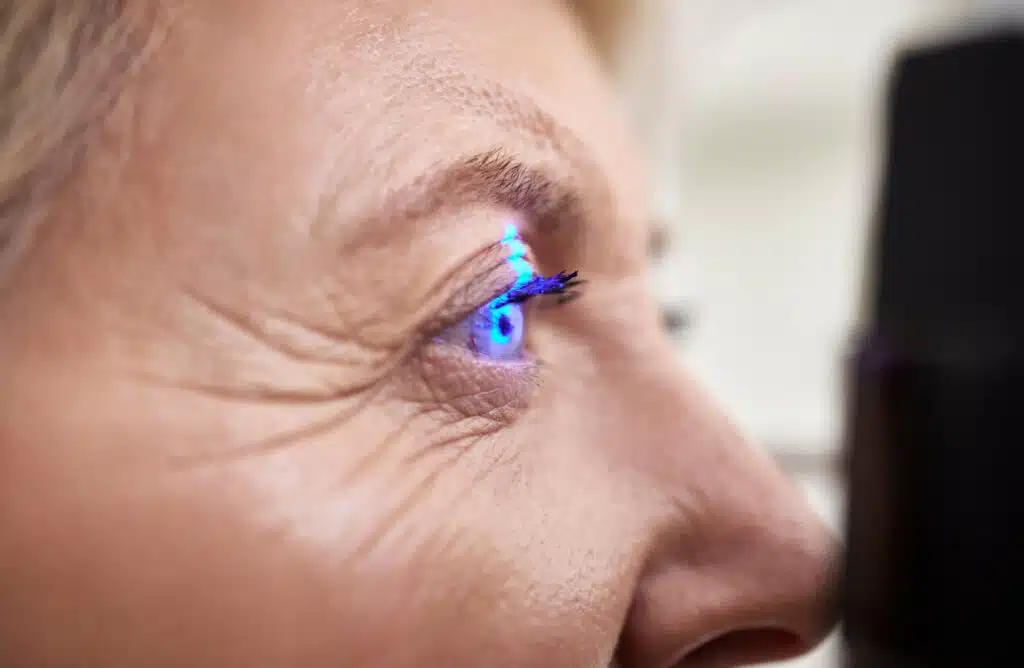
Glaucoma is a leading cause of irreversible blindness worldwide. It can affect anyone, no matter their age. Medicine, surgery, and other treatments are still good options for managing glaucoma. However, laser eye treatment for glaucoma is an advanced technique that has many benefits. But is laser surgery the right choice for you?
This article can help you determine if laser eye treatment for glaucoma is the best choice for you.
What is Glaucoma?
Glaucoma is more than a single disease. It is a group of eye conditions that damage the optic nerve connecting your eyes to your brain. This damage is typically caused by increased pressure within the eye (intraocular pressure or IOP). Some forms of glaucoma can occur even with normal IOP.
Glaucoma is also a progressive condition. This means that it worsens gradually, and the initial symptoms might not be noticeable. Untreated glaucoma can lead to vision loss or blindness.
Types of Glaucoma
There are several types of glaucoma, each with unique characteristics. Knowing the type of glaucoma you have is critical for getting the appropriate treatment.
Primary Open-Angle Glaucoma (POAG)
POAG is the most common form of glaucoma. If fluid does not drain efficiently from your eye, then IOP gradually increases. POAG often develops painlessly and without noticeable vision loss until the disease is advanced.
This can cause blurred or narrowed vision. Left untreated, POAG can make it difficult to see things in the center of your field of vision.
Angle-Closure Glaucoma (ACG)
ACG occurs when the drainage angle in the eye becomes blocked. This will create a rapid increase in IOP, resulting in severe eye pain, nausea, and rapid vision loss. ACG requires immediate medical attention.
Normal-Tension Glaucoma
Optic nerve damage can occur even without high IOP. This usually happens because of poor blood flow or other systemic issues.
Secondary Glaucoma
Secondary glaucoma can result from trauma, inflammation, steroid use, or other underlying conditions.
Traditional Glaucoma Treatments
The three most common traditional glaucoma treatment methods are eye drops, oral medications, and surgical intervention.
- Eye Drops: Eye drops reduce IOP by decreasing fluid production or improving drainage.
- Oral Medications: Medicine can help control IOP when eye drops alone are not enough.
- Surgical Intervention: Surgery can create new drainage pathways in your eye.
While effective, these treatments have limitations. You might experience side effects and will need to adhere strictly to any treatment plans. Traditional surgery also often has a long recovery time.
Laser Eye Treatment for Glaucoma
Laser treatment is an advanced approach to managing glaucoma. Laser procedures can be a standalone treatment, but they can also be used with other methods. The choice to use laser treatment depends on your case and overall health.
Selective Laser Trabeculoplasty (SLT)
SLT uses low-energy lasers to improve fluid drainage in your eye. It is a highly effective and minimally invasive procedure.
Your eye doctor will direct short bursts of low-energy laser light at specific parts of your eye. The lasers help clear the trabecular meshwork, which is what drains fluid. Clearing the meshwork improves fluid drainage and lowers pressure in the eye.
SLT is typically used to treat primary open-angle glaucoma. Other types of glaucoma might need a different approach.
Benefits of Laser Eye Treatment
Laser treatment for glaucoma has many advantages over traditional methods.
- Minimally Invasive: Laser procedures are much less invasive than surgical options.
- Reduced Dependence on Medications: Laser treatments can reduce or eliminate the need for medication.
- High Success Rate: Laser treatments like SLT reduce IOP and help maintain stable vision for many patients.
- Quick Procedure: Laser procedures usually only take 30 minutes or less.
- Long-Term Benefits: The effects of laser treatment can last for several years.
Risks and Considerations
Laser treatments have many benefits, but there are also some things to consider. It is important to know the possible risks of any treatment.
- Temporary Vision Disturbances: You may experience temporary blurred vision after the procedure.
- Inflammation: Mild discomfort can happen after a laser treatment that can be treated with eye drops.
- Variable Effectiveness: Laser treatment might not reduce IOP significantly.
- Repeat Treatments: The effects of laser therapy can diminish over time.
Is Laser Eye Treatment for Glaucoma Right for You?
Determining whether laser eye treatment is suitable depends on several factors, such as:
- The severity and type of glaucoma
- Your response to current or previous treatments
- Your overall eye health and any underlying conditions
People who want to avoid medication may be good candidates for laser eye treatment.
It is critical to consult an eye doctor about your treatment options. They can provide insight into whether laser eye treatment for glaucoma is your best option.
Efficient Laser Eye Treatment for Glaucoma in Washington, MO
Glaucoma is a complex and lifelong condition. However, laser treatment can be an effective and lasting solution. Laser treatment helps manage symptoms and reduce the need for other treatments. By getting intervention early, you can preserve your vision.
Are you looking for an eye doctor in St. Louis? Visit the Advanced Sight Center for effective eye care. We will evaluate your condition, discuss treatment options, and recommend a tailored plan for you. Our board-certified ophthalmologists will provide the high-quality eye care you deserve. Call us today at (636) 239-1650, or schedule a consultation.
We look forward to serving you!
Sources:
https://www.mayoclinic.org/diseases-conditions/glaucoma/symptoms-causes/syc-20372839
https://www.hopkinsmedicine.org/health/conditions-and-diseases/glaucoma
https://my.clevelandclinic.org/health/diseases/4212-glaucoma
https://www.ncbi.nlm.nih.gov/books/NBK441887/



